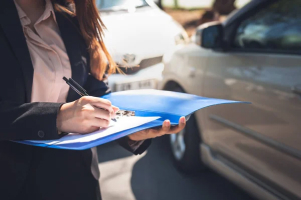
Car accidents happen suddenly and can be extremely stressful. You might feel overwhelmed, scared, or unsure about what to do next. Knowing the right steps after a car accident is essential for your safety and rights.
At Ryan Injury Lawyers, we know that car insurance and personal injury protection can be confusing if an accident occurs. We can negotiate with your auto insurance and pursue the other driver to ensure you are appropriately compensated. Take a look at our services below, and reach out to us to schedule a free case consultation.
The Importance of Knowing What to Do After a Car Accident
Being in a car accident is a traumatic experience. Even minor fender benders can shake someone up. Knowing the proper actions to take afterward can expedite your medical recovery while safeguarding your rights. It also aids in dealing with insurance companies and possibly recovering compensation.
In addition, understanding the steps to take can reduce post-accident anxiety. When you’re equipped with the right knowledge, you’re empowered. This empowerment can make a difference in how you navigate the aftermath of an accident. Making informed decisions can positively impact your physical, emotional, and financial recovery.
Immediate Actions to Take at the Accident Scene

When an accident occurs, initial reactions are crucial. These first actions can aid in ensuring everyone’s safety. It’s also the starting point for any legal or insurance proceedings that might follow.
Pulling Over to a Safe Location
The first thing to do is get to safety. If your vehicle can move, steer it to a safe location off the road. This protects you from oncoming traffic and further harm. Remember, it’s important to act quickly but remain calm.
Staying in the middle of the road can be dangerous. It risks secondary accidents from cars that may not see the crash in time. So, always prioritize moving to a safe spot. Once parked safely, you can proceed with the next steps.
Turning on Hazard Lights
Your hazard lights let others know there’s a problem. As soon as you pull over, turn them on. This warns approaching vehicles of the situation ahead, giving them time to react safely. The bright blinking lights, especially in low visibility conditions, can prevent further accidents.
These lights are a universal signal for distress or warning. When others see them, they understand to proceed with caution. This simple step can make a considerable difference in ensuring the scene remains as safe as possible for everyone involved.
Checking for Injuries
After an accident, check yourself for injuries. Then, if possible, check on others involved. Remember, some injuries might not be visible right away. If you or anyone else feels pain, dizziness, or any discomfort, it’s crucial to seek medical help immediately.
Your health and safety are the top priorities. Sometimes, the adrenaline from an accident can mask pain or injury. That’s why it’s always a good idea to get checked by medical professionals, even if you feel fine at the moment.
Contacting Authorities
A. Always Call 911 or Local Law Enforcement
Whenever an accident occurs, it’s essential to alert the authorities. Whether it’s a minor or major collision, police can document the scene. They’ll make an official report, which can be useful later. Always call 911 or your local police department after an accident.
B. Providing Essential Information to Dispatch
- Location: Clearly state your exact location or nearest landmark.
- Number of Vehicles Involved: Mention how many vehicles participated in the accident.
- Injuries, if Any: Let dispatch know if there are any injuries and their severity so they can send appropriate help.
C. Waiting for Authorities to Arrive
Once you’ve called the police, wait for them. They’ll ask questions, document the scene, and provide guidance on the next steps. Listen to their instructions, and cooperate fully.
Documenting the Accident

A. Gathering Important Information
- Exchanging Contact and Insurance Information: Make sure to exchange names, phone numbers, addresses, insurance details, and license plate numbers with all involved parties.
- Collecting Witness Details: If there are witnesses, collect their contact details. Their account can be useful later.
- Taking Photos of the Accident Scene: Use your phone to take clear photos of vehicle damages, skid marks, road conditions, and any visible injuries.
B. Filling Out an Accident Report With Law Enforcement
It’s crucial to ensure that the police file an official car accident report. This report is a key document for insurance claims and possible legal actions. Be truthful and clear when giving your account of the accident to the police.
Seeking Medical Attention
A. Recognizing Common Accident-Related Injuries
Injuries like whiplash, concussions, or internal injuries might not be immediately noticeable. Always be alert to signs like pain, dizziness, or nausea after an accident.
B. The Importance of Seeking Medical Care, Even for Minor Injuries
Even if you feel okay, see a doctor. Minor pains can sometimes be symptoms of more severe injuries. Prompt medical attention ensures your well-being and helps document any injuries from the accident.
C. Documenting Medical Treatment for Insurance Claims
Keep all medical records and bills. These documents can be critical when filing an insurance claim. They also help if you decide to pursue legal action.
Contacting Your Insurance Company

A. When and How to Notify Your Insurance Company
Let your insurance company know of the crash as soon as possible. They’ll guide you on the next steps and what information they’ll need from you.
B. Information to Provide During the Initial Report
Provide all details about the accident, including location, time, involved parties, and police report details. Be honest and comprehensive.
C. Understanding the Claims Process
Your insurer will explain the claims process. They may send an adjuster to assess vehicle damage. Make sure to understand your policy’s coverage limits and deductible amounts.
Dealing With Legal and Liability Issues
A. When to Consider Legal Assistance
Consider hiring a lawyer if you face serious injuries or significant property damage or if the fault is disputed. Legal expertise can help protect your rights and secure fair compensation.
B. Understanding Fault and Liability
In some states, the party at fault pays for the damages. Know your state’s laws and how fault impacts your case.
C. Handling Interactions With the Other Driver’s Insurance Company
Be careful when speaking to the other driver’s insurer. They may try to minimize your claim. Having a lawyer can help navigate these discussions.
Repairing or Replacing Your Vehicle

A. Assessing Vehicle Damage
Get a professional evaluation of your car’s damage. This assessment helps determine whether repairs are possible or the vehicle is a total loss.
B. Getting Repair Estimates
Collect repair estimates from reputable mechanics. This gives you a clearer picture of repair costs.
C. Working With Insurance on Vehicle Repairs or Replacement
Your insurer will guide you on approved repair shops and how they’ll cover repair costs or vehicle replacement.
Keeping Records and Staying Organized
A. Importance of Maintaining Accident-Related Records
Hold onto all accident-related documents. This includes medical bills, repair estimates, and any correspondence with insurance companies.
B. Organizing Paperwork and Correspondence
Stay organized. Having a dedicated folder or digital space for accident-related documents makes the process smoother and ensures you don’t misplace crucial information.
Reporting to the DMV (Department of Motor Vehicles)
A. When and How to Report the Accident to the DMV
Many states require you to report car accidents to the DMV, especially if injuries or significant damages occur. Check your state’s specific requirements.
B. Necessary Documentation for the DMV Report
You might need to provide a copy of the police report, insurance details, and personal identification when reporting to the DMV. Ensure you have all the necessary paperwork.
Dealing With Emotional and Psychological Impact
A. Recognizing the Emotional Aftermath of an Accident
Accidents aren’t just physically traumatic. They can also be emotionally draining. It’s normal to feel a range of emotions, from shock to anger or sadness.
B. Seeking Support and Counseling, if Needed
If you find it challenging to cope after the accident, consider seeking professional counseling. It’s essential to address both your physical and emotional well-being.
Damages You Can Recover From Your Car Accident Injuries
Car accidents can bring about various expenses and losses. You might wonder what compensation you can recover. These damages often fall into several categories:
- Medical Expenses: You can get compensation for hospital bills, therapy, medication, and future medical costs.
- Lost Wages: If you missed work due to the accident, you might recover lost income.
- Property Damage: This covers repairs to your vehicle or the replacement cost if it’s totaled.
- Pain and Suffering: This considers the physical and emotional pain caused by the accident.
- Punitive Damages: In cases of extreme negligence, you might get awarded punitive damages to punish the at-fault party.
Knowing these potential damages ensures you claim everything you’re entitled to. A skilled lawyer can guide you in understanding and pursuing these damages.
How Our Car Accident Lawyer Can Help You With Your Car Accident Case

When faced with a car accident aftermath, you don’t have to go it alone. Some of the benefits a car accident lawyer can offer you include:
- Legal Advice: A lawyer provides advice customized to meet your specific case. We have a long track record of successful case outcomes.
- Handling Insurance Companies: They negotiate with insurance adjusters on your behalf, seeking fair compensation.
- Gathering Evidence: Lawyers know how to present evidence supporting your claim.
- Navigating Legal Procedures: They handle the legal side of things, from filing claims to representing you in court, if necessary.
- No Win, No Fee: Many lawyers work on a contingency fee basis, meaning you only pay if you win.
Having a lawyer by your side can offer peace of mind. They take on the heavy lifting, allowing you to focus on recovery.
Get in Touch With Ryan Injury Lawyers to Schedule a Free Consultation With Our Car Accident Lawyer

If you’ve been in a car accident, the road to recovery can seem daunting. But remember, you don’t have to navigate this path alone. Ryan Injury Lawyers is here to guide, support, and advocate for you every step of the way. Our attorneys always put your needs first.We believe in standing up for the rights of accident victims. We are here to listen to your story, answer your questions, and offer legal advice. Contact us for a free consultation today. Let’s discuss how we can help you move forward.
